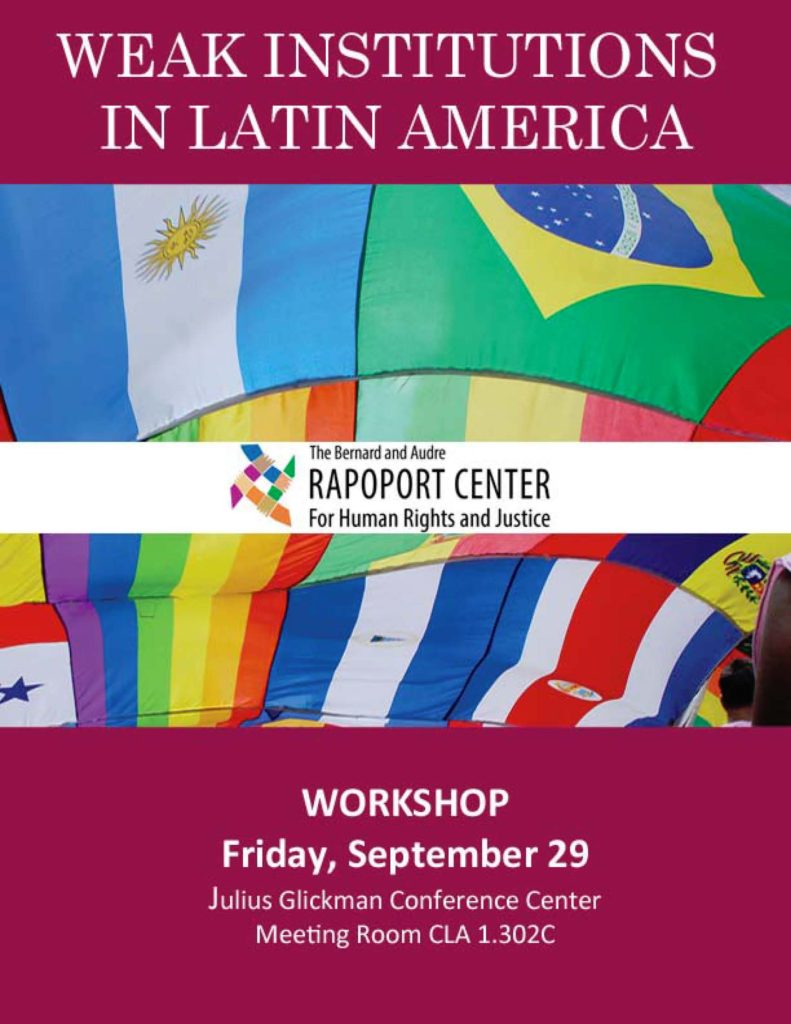
Weak Institutions in Latin America
The third wave of democracy swept rapidly over Latin America, so that by the end of the twentieth century nearly the entire region was democratic. Democracy brought with it, in Latin America as in much of the world, institutions that promised a number of improvements in care for the environment, in working conditions, in respect for the rights and cultures of long-neglected culturally distinct groups, in political, social and economic citizenship for all. Democracy expanded rights and empowered mobilized citizenries; their activism contributed to formal improvements to the region’s institutions; these institutions promised better outcomes and conditions for many of the region’s neglected populations.
Since then, however, much of the democratic discontent in the region has centered on the weakness of these very same institutions. The scholarship on Latin American democracies has thus focused on how and why the widespread institutional innovation and evolution has not led in many cases to the expected improvements in actual conditions. With support from Columbia University, this workshop brings us back to some of the basic building blocks for this burgeoning literature on specific instances of institutional weakness. We use the combined experience of some of the best researchers on Latin American institutions to further develop the conceptual and theoretical tools that will allow us to understand the common roots of this institutional weakness. The workshop will take a deeper look at the distance between the promise and the performance of these formal institutional innovations. Some of the papers explore the drivers of failed promises and unmet expectations that temper democratic accomplishments. Conversely, others explore the conditions under which successful institutional transformations deliver on the promise of a better reality. Finally, the workshop includes some instances of institutions that, somewhat ironically, perform as expected but fail to produce meaningful change, or fail to perform precisely in order to accomplish positive redistributive ends.
The workshop is partly funded by the Ford Foundation as part of the Rapoport Center’s multi-year project on human rights and socio-economic inequality, which focuses on the drivers of inequality. The papers in this collection make abundantly clear that inequality – political, social and economic – is at the root of many of the institutional failures we document here, and, conversely, that many of these failures are responsible for producing and reproducing inequality. Some of the papers make the additional point, however, that at least one of the strategies for addressing inequality is to push back against certain institutions that are themselves responsible for inequality.
Detailed schedule available here (PDF).
Seating for this event is very limited, so if you are interested in attending one or more of the sessions, please RSVP to Sarah Cline.
Supporters


